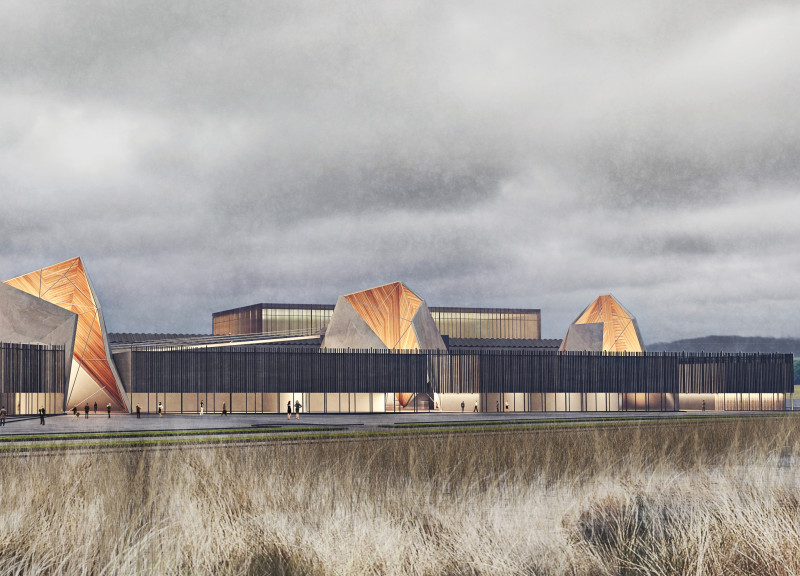5 key facts about this project
The Riga Exhibition and Convention Center (RECC) is situated in the lively city of Riga, Latvia, designed as a versatile space for hosting a variety of events. It serves as a hub for conferences, exhibitions, and social gatherings, bringing together multiple functions. The design emphasizes connectivity and interaction, creating pathways that allow visitors to move freely between different areas within the center.
Entry Plaza
The design features an entry plaza that spans approximately 1,240 square meters and serves as the main point of access to the building. This large area is intentionally open to encourage visitor movement and create a friendly atmosphere. Shaded seating and greenery help to enhance the experience, making it a pleasant space for people to gather before entering the main facilities.
Large Conference Halls
Within the center are several large conference halls, totaling around 600 square meters. These flexible spaces are designed to accommodate a variety of events, allowing for different layouts and configurations. Whether hosting a large presentation or a smaller meeting, the halls provide the necessary adaptability. This makes the center suitable for diverse users, from corporate groups to community events.
Shared Workspaces
The design also includes shared workspaces aimed at students and young professionals. These areas support collaboration and creativity, responding to the rising demand for informal working environments. By placing these workspaces close to Riga Technical University, the center becomes a practical resource for the academic community, fostering connections among students and professionals.
Architectural Expression
The building's design reflects a modern take on the historical context of Riga. Its facade is adorned with wood slats, which echo the tall trees found in Baltic forests. This gives the center a unique character while grounding it in the local environment. The forms used in the entry plazas draw inspiration from the traditional pitched roofs commonly seen throughout the city.
An elevated hotel provides guests with views of the Old Town skyline, linking the center’s interior spaces to the surrounding urban landscape. The thoughtful integration of hospitality and event areas enhances the overall appeal of the center, creating a destination that serves multiple functions.


























